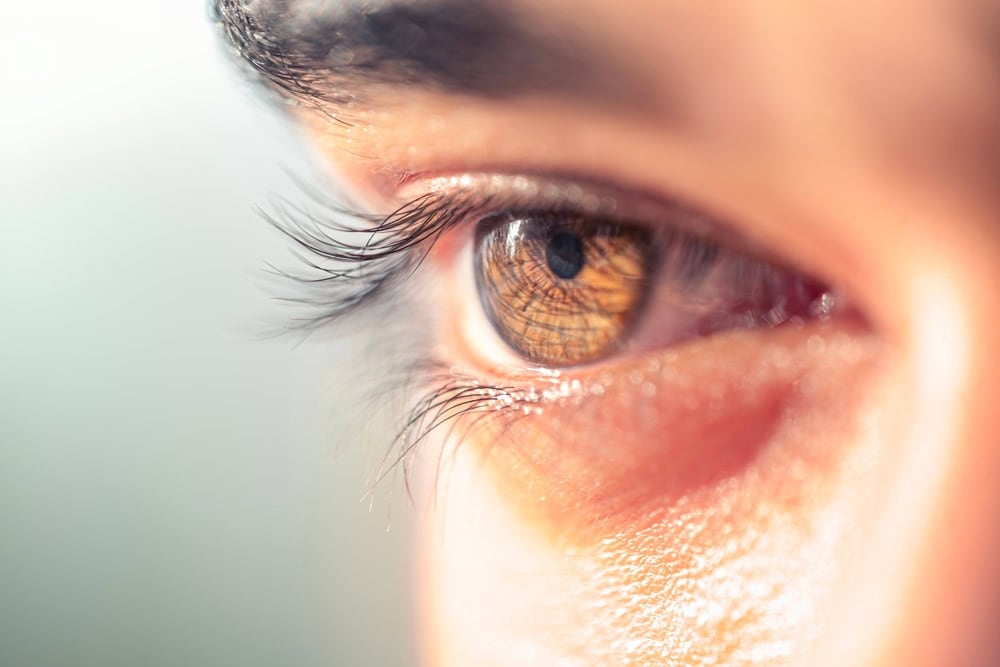
Keratoconus, a progressive, non‑inflammatory eye disorder, causes the cornea—the front surface of youreye—to thin and bulge into a cone shape. This leads to blurred or distorted vision, halos around lights, and frequent changes in eyeglass prescriptions. Dr. Amit Jain, one of the Best Eye ophthalmologists in Dubai, specializes in managing keratoconus using advanced diagnostics and treatments like scleral lenses and corneal cross‑linking. Learn more about our keratoconus treatment here.
Understanding Keratoconus
Keratoconus typically begins in the teenage years or early twenties and affects both eyes, though not always equally. The irregular astigmatism and progressive thinning of the cornea distort how light enters the eye, reducing visual clarity. As the cornea becomes more cone-shaped, night driving becomes difficult, and vision quality drops significantly. Without intervention, corneal scarring or the need for a transplant may follow.
Early Signs and Symptoms to Watch
Catching keratoconus early can mean better outcomes. Watch for these early signs of keratoconus:
- Blurred or distorted vision
- Straight lines appear wavy
- Frequent eyeglass or contact-lens prescription changes
- Increased sensitivity to light
- Halos or glare around lights
- Eye strain or discomfort
- Difficulty with night driving
These may seem subtle, but they can be early indicators. If you notice these, book a specialized screening.
How Keratoconus Affects Your Vision
Keratoconus alters corneal shape and clarity:
- Light isn't properly focused on the retina
- Vision becomes ghosted or blurry
- Astigmatism and nearsightedness worsen
- Regular contact lenses may become uncomfortable
- Later-stage corneal scarring can permanently affect vision
Advanced Treatment Options
Dr. Amit Jain offers a personalized approach tailored to your keratoconus stage:
1. Corneal Collagen Cross‑Linking (CXL)
A minimally invasive procedure using riboflavin and UV light to strengthen corneal structure and halt disease progression.
2. Scleral Lenses
These custom large-diameter rigid lenses vault over the cornea and rest on the sclera—ideal for irregular corneas.
3. Rigid Gas Permeable (RGP) Lenses
Effective in early keratoconus, these lenses sit directly on the cornea but may be less comfortable in advanced stages.
4. Customized Lens Solutions
Options include hybrid lenses, piggyback systems, and soft lenses specially designed for keratoconus comfort.
5. Corneal Transplant
Recommended for advanced cases with severe scarring, either partial or full-thickness transplant restores corneal structure.
Why Early Detection Is Crucial
If you’re experiencing frequent eyeglass changes, night-time glare, or other symptoms, schedule a consult with Dr. Amit Jain, a leading keratoconus specialist in Dubai. We offer compassionate, world-class care with treatment plans tailored to your needs.
Prefer scleral lenses? Learn more about our 👉 scleral lens fitting process.
FAQs – Voice‑Search Friendly
1. What is keratoconus?
A condition where the cornea thins and bulges outward, causing distorted vision.
2. How is keratoconus diagnosed?
Authoritative tests include corneal topography, tomography, and thickness mapping.
3. Is keratoconus hereditary?
Yes, a family history increases risk; genetics plays a key role.
4. Can keratoconus be cured?
Not fully cured, but progression can be halted and vision improved with treatments like cross-linking and lenses.
5. When does keratoconus start?
Usually during adolescence or early adulthood.
6. Can keratoconus cause blindness?
Rarely. With proper management, serious vision loss is preventable.
7. What are the best lenses for keratoconus?
Scleral lenses are often the top choice, especially in moderate to advanced cases.
